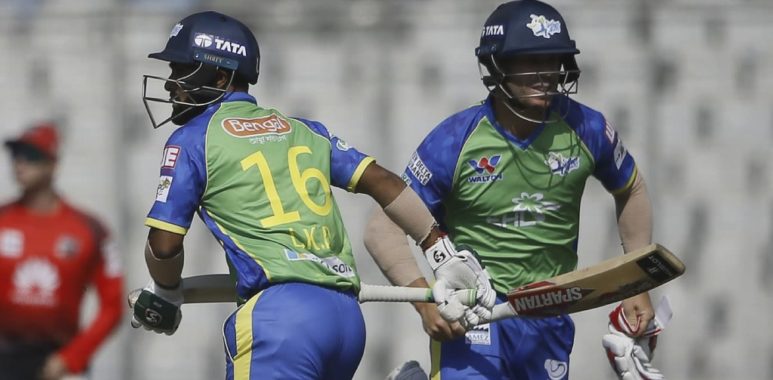
FICA wants ‘clear global solutions’ to tackle contract breaches in sanctioned cricket
The Federation of International Cricketers’ Associations (FICA), the game’s global players’ body, has criticised the ICC and its member boards for failing to show “enough of a willingness to prioritise and act on” the issue of systematic contract breaches in sanctioned cricket.
Earlier this year, FICA’s annual report found that 34% of current players have experienced issues with late or non-payment in events or leagues approved by the ICC or its members, highlighting problems with six tournaments including the Bangladesh Premier League and the Abu Dhabi T10. And, at its virtual annual meeting this week, FICA said in a media statement that its board had “resolved to continue to focus on global solutions in response to the growing and significant statistics on player non-payment and late payment” in such events.
Tom Moffat, FICA’s chief executive, said that the body had proposed “clear global solutions” and that players “deserve to play in a regulatory environment that protects them, not just the ICC and boards”. Moffat told ESPNcricinfo that FICA has highlighted two potential solutions in particular: contract minimum standards and contract enforcement mechanisms.
One lawyer explained earlier this year that many contracts in T20 leagues are “cut-and-paste jobs”. Moffat explained that minimum standards were necessary “to ensure a basic level of fairness in all sanctioned cricket”. “There is no point in having enforcement mechanisms to enforce “bad” contracts,” he said.
“There is precedent for these sorts of measures in other global sports and given the direction of travel in cricket, with the growth of the domestic leagues landscape, private ownership, and a more club-based model, cricket should be taking learnings from those sports. We believe global solutions are necessary as the problem is global”
FICA chief executive Tom Moffat
Possible mechanisms for enforcing contracts are upheld, including escrow payments, by which funds are kept in the custody of a third party and paid out when specific conditions have been fulfilled. Moffat said that FICA had proposed “central bank account requirements with player representative oversight” and “the establishment of a fit-for-purpose global arbitration tribunal set up to deal with employment-related disputes”.
“There is precedent for these sorts of measures in other global sports and given the direction of travel in cricket, with the growth of the domestic leagues landscape, private ownership, and a more club-based model, cricket should be taking learnings from those sports,” Moffat said. “We believe global solutions are necessary as the problem is global, the ICC’s sanctioned cricket regulations currently regulate players globally, and we believe those regulations should protect players, not just the ICC and boards.”
While the ICC’s management has expressed some support for such enforcement mechanisms, it does not have jurisdiction over domestic leagues, which are instead run by member boards, and as a result is unable to sanction them with regards to payment.
Also on the agenda at FICA’s meeting was the issue of players’ commercial rights, as revealed by ESPNcricinfo last month. Moffat said that the likelihood of litigation being brought forward left him unable to go into detail, but confirmed that there were “several ongoing issues relating to the use of player attributes and content by the ICC and its partners for commercial purposes”.
Heath Mills, the chief executive of the New Zealand Players’ Association and a board member for the last 18 years, has been appointed chairman following the culmination of Tony Irish’s term in the role. Irish, who left his role at the Professional Cricketers’ Association in the UK earlier this year for family reasons, will continue to sit as an independent board member. The Dutch Cricketers’ Association has also joined FICA, becoming the tenth players’ body to do so.

